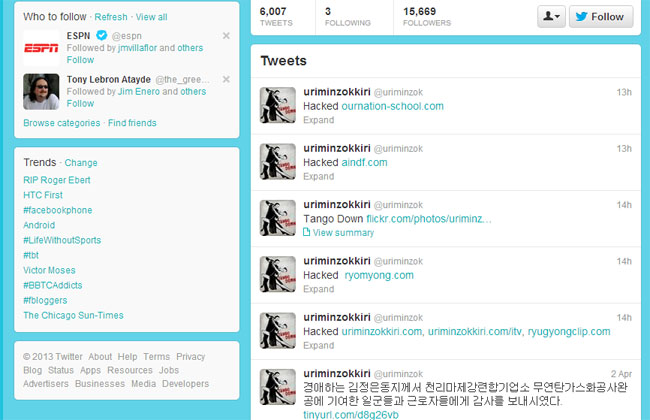
It’s been a while since Anonymous last unleashed its wrath by breaking into websites and defacing them with its signature slogans, but we didn’t have to wait too long for the hacktivist group to acquire a suitable target – this week it’s North Korea.
Last week, a group of hackers claiming to be part of Anonymous reportedly gained access to 15,000 passwords from Uriminzokkiri.com – a North Korean news and information website – as a message against the country’s regime and nuclear weapons program. The site is currently unavailable, proving that the group responsible for the hacking did some real damage. Although there’s been no real confirmation that this was an Anonymous attack, the screenshot (see above) links Uriminzokkiri to a slew of websites that have been tampered with, including a Flickr account, which appears to have been cleansed recently of offending images posted (see screenshot by The Next Web here). Music store ryomyong.com and ournation-school.com – also identified as a site for Kim Il Sung Open University – remain down and unavailable. Political site aindf.com still prominently features a defaced North Korean leader Kim Jong-un.

The group also claimed to have a few of its own in North Korean territory who are using exhaustive efforts to spread uncensored Internet use through “a chain of long-distance WiFi repeaters with proprietary frequencies”; this statement’s truthfulness is still up for debate, since most of North Korea’s websites are run from China and having in-person access seems unnecessary.
Real or not, propagated by Anonymous or not, more of these North Korea-related cyber attacks are bound to happen again, the next one on April 19, according to a tweet by @Anonymous_Korea:
Next Schedule : #OpFreeKorea: 04/19#OpKoreanWar: 06/25We are Anonymous. Expect us! #어나니머스 #Anonymous
— Anonymous_Korea (@Anonsj) March 31, 2013
